New research reveals antidepressants, not depression, are a greater driver of type 2 diabetes risk. This post isn’t anti-medication—it’s about opening up honest conversations and supporting informed consent.
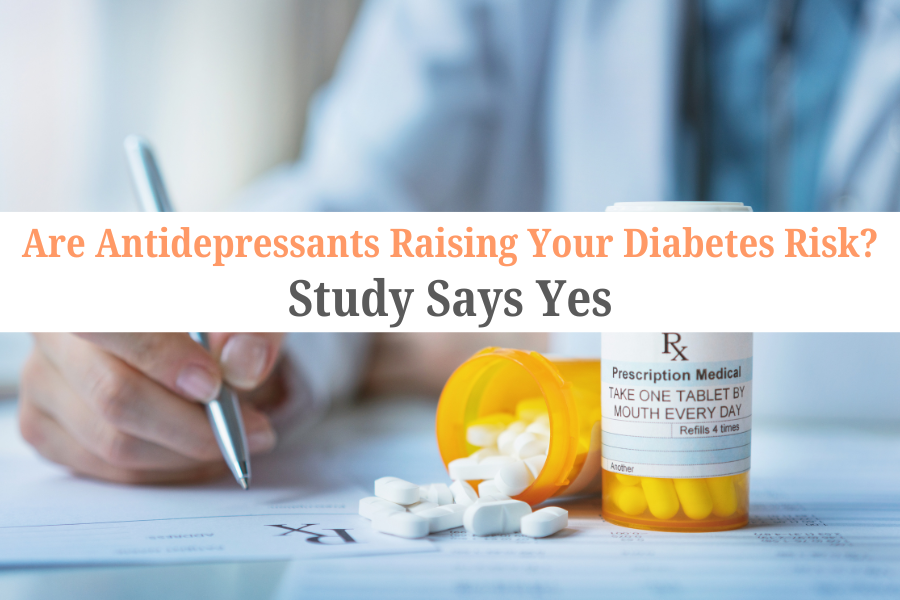
Antidepressants have helped millions manage depression, regain their lives, and function in ways that might not have been possible otherwise. But what often gets overlooked is a clear and transparent discussion about their long-term risks, especially those affecting metabolic health.
As research on psychiatric medications advances, it’s becoming increasingly clear that these drugs don’t just alter brain chemistry. They may also influence physical health in significant ways, including blood sugar regulation, insulin sensitivity, and weight management.
In fact, recent studies raise serious concerns that antidepressants, rather than depression itself, may be more directly linked to the development of type 2 diabetes (T2D).
Let’s take a closer look at what recent research reveals about this often-overlooked link!
Challenging the Status Quo: Recent Findings on Antidepressants and T2D
A 2025 study published in Progress in Neuropsychopharmacology & Biological Psychiatry used a genetic analysis technique called Mendelian randomization to investigate this link.
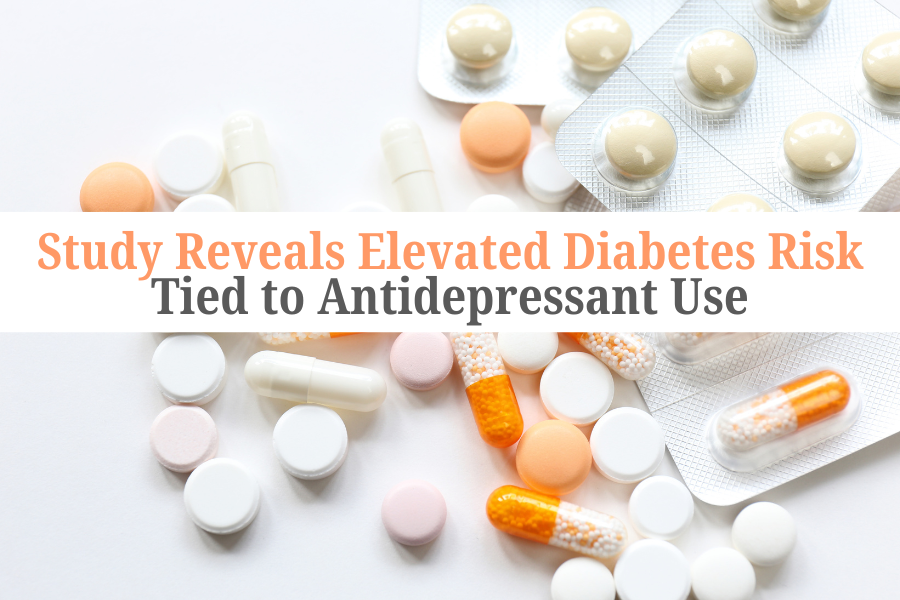
According to the researchers:
“We found that the use of antidepressants has a higher causal association with T2D than major depressive disorder (MDD) itself, and identified antidepressant use as an independent risk factor for T2D. Surprisingly, we also show that MDD did not exert an independent causal effect on T2D, suggesting that the influence of MDD on T2D is mainly due to the mediating effects of antidepressants.”
These results suggest that what was previously thought to be diabetes risk caused by depression may actually be driven more by the antidepressant treatment.
Related Post: Rethinking Mental Health Care from the Inside Out
Understanding the Biochemical Pathways: How Antidepressants May Affect Metabolic Health
A 2023 review published in Diabetology & Metabolic Syndrome supports these concerns about the impact of certain antidepressants on how the body manages blood sugar.
Specifically, some antidepressants like tricyclic antidepressants (TCAs) and selective serotonin reuptake inhibitors (SSRIs), may:
- Interfere with insulin signaling
- Increase insulin resistance (making it harder for the body to use insulin)
- Harm the function of the pancreatic beta cells, which produce insulin
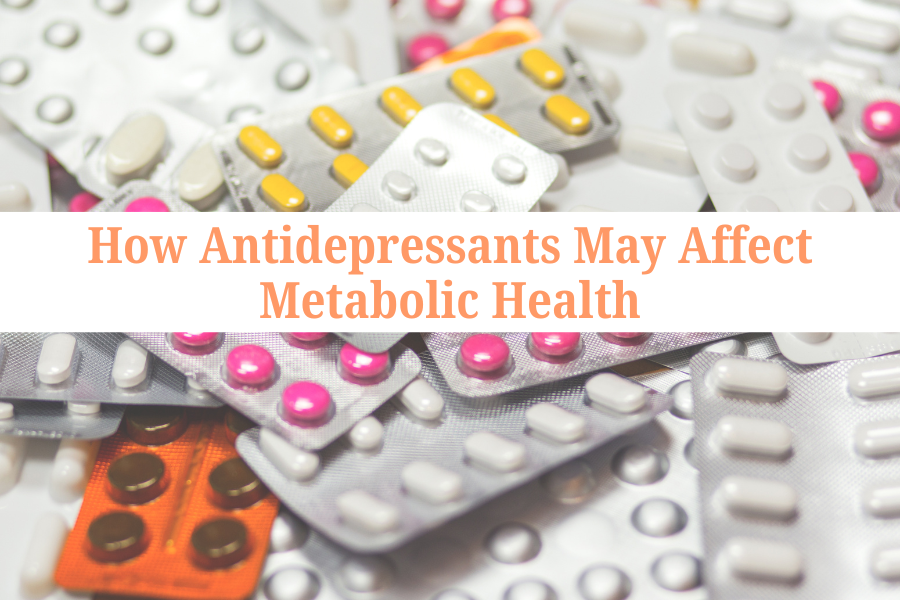
Some SSRIs, such as fluoxetine and citalopram, have actually been found to improve insulin sensitivity in people who already have diabetes.
However, the review also highlighted an important point: the effects aren’t the same for everyone.
While antidepressants can help improve blood sugar control and insulin sensitivity in some cases, long-term use may also increase the risk of developing type 2 diabetes.
Because of this, there is ongoing debate about the safety of antidepressants for people with or at risk of diabetes. The review encourages a balanced understanding of both the benefits and risks of these medications on metabolic health.
Depression and Diabetes: A Bidirectional Relationship
The connection between depression and T2D has long been studied and is known to be complex and two-way:
- People with diabetes are more likely to develop depression. In fact, depression is much more common in people with T2D than in those without it.
- On the other hand, people with depression are also more likely to develop diabetes.
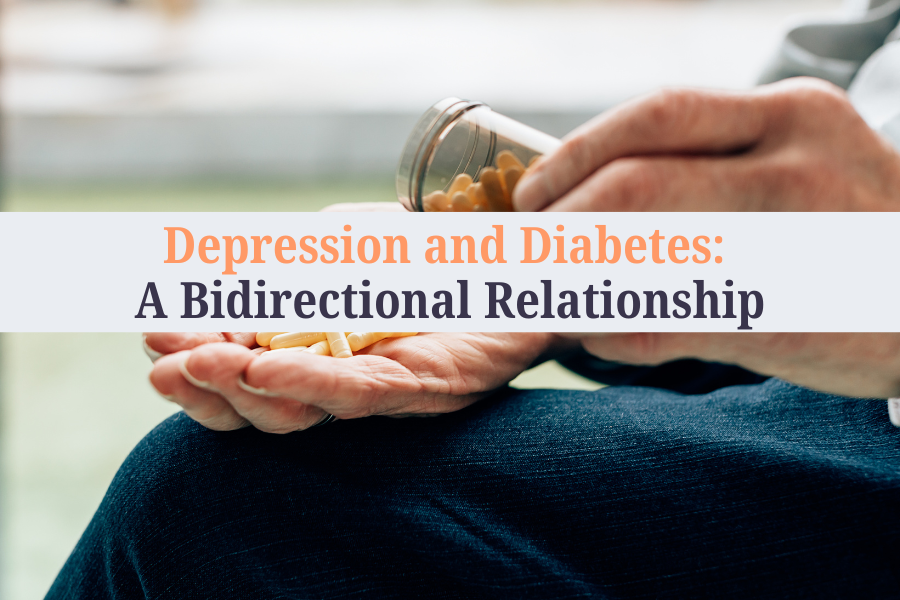
This is the usual story you hear when these two conditions are discussed.
For example, people with T2D may develop depression due to changes in brain chemistry caused by high blood sugar, inflammation, and insulin problems.
At the same time, depression can raise the risk of developing diabetes because it often leads to unhealthy habits like poor eating and less physical activity. It can also affect how the body handles stress and inflammation.
Both conditions share some biological factors, like ongoing inflammation, stress hormone imbalances, and changes in brain chemicals.
But, as mentioned earlier, new research suggests that antidepressants themselves might have a bigger role in this connection than we previously thought.
Clinical Implications: Why This Matters for Patients and Providers
Whether you’re a patient, provider, or caregiver, these insights should prompt new questions and deeper conversations.
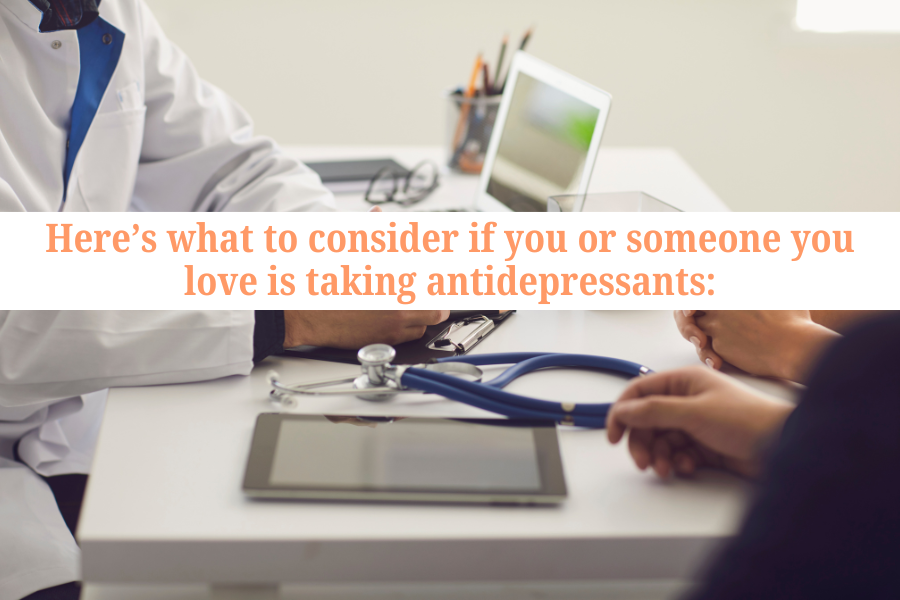
✅ Demand metabolic monitoring
Ask your provider to regularly check blood glucose, A1C, and insulin levels during antidepressant use.
✅ Explore integrative care options
Cognitive behavioral therapy (CBT), nutrition counseling, exercise, and mindfulness may help support mental health without increasing metabolic risk.
✅ Choose meds carefully
Ask about the metabolic side effect profile of any antidepressant you’re prescribed. Some have lower risk than others.
✅ Never stop medications abruptly
If you’re concerned, talk to your doctor about a safe tapering plan. Abrupt discontinuation can be harmful.
Limitations of the Studies: What We Still Don’t Know
- The 2025 study used genetic data primarily from individuals of European ancestry, limiting how well the findings apply to other ethnic groups.
- Environmental and lifestyle factors were not fully controlled, which could affect the results.
- Scientists do not yet fully understand how different classes of antidepressants influence blood sugar regulation and insulin resistance.
- More research is needed to clarify these biochemical mechanisms and to compare the long-term metabolic effects of various antidepressants.
Informed Consent Is Key!
Medications aren’t bad — definitely not. Antidepressants have helped so many people reclaim their lives, and they can be a powerful part of healing.
I’m not here to scare you. I just want you to be aware. Because yes, antidepressants can be life-changing. But so can type 2 diabetes, and that’s something you deserve to be fully informed about.
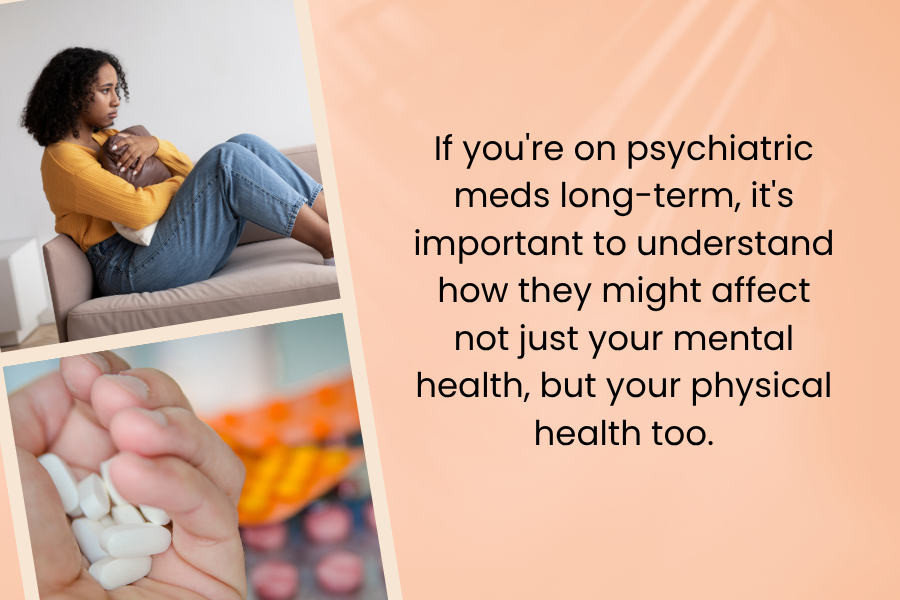
I’m not saying you should stop taking meds. I’m saying: know what you’re taking.
Every medication has a profile, and the more you understand yours, the more power you have to make choices that support your whole well-being, mind, and body.
+ show Comments
- Hide Comments
add a comment